Dr. Rabab Zahra Laboratory, Department of Microbiology Introduce
For students, researchers, and health professionals in Islamabad Capital Territory, staying at the forefront of scientific advancements, particularly in the critical field of microbiology, is paramount. Within the highly respected Department of Microbiology at Quaid-i-Azam University (QAU), a key hub for groundbreaking research is the Dr. Rabab Zahra Laboratory. This facility, led by an accomplished Professor of Microbiology, is at the forefront of tackling some of the most pressing health challenges facing Pakistan today, notably antibiotic resistance. This article aims to provide a clear, engaging, and informative overview of the Dr. Rabab Zahra Laboratory, highlighting its significance and benefits for the local academic and health community in Islamabad.
The Dr. Rabab Zahra Laboratory is an integral part of QAU's Department of Microbiology, a department recognized for its contributions to teaching and research in Pakistan. Dr. Rabab Zahra herself is a distinguished academic with a Ph.D. from the University of Edinburgh, UK, and extensive post-doctoral experience from prestigious institutions in the USA. Her impressive background underscores the caliber of research and mentorship available at this laboratory. Her work focuses on critical areas, particularly the "epidemiology and dissemination of antibiotic resistance in clinical and non-clinical settings and its impact upon infection outcomes in Pakistan." This research directly addresses a global health crisis that has significant implications for public health within Islamabad and across the nation.
The laboratory’s research often delves into "the impact of the resistant bacteria in neonatal infections" and explores "links between hospital and community acquired infections." This targeted approach is vital for understanding how antibiotic resistance spreads and developing effective strategies to combat it, especially in vulnerable populations. Furthermore, the interest in "studying the reservoirs of these resistant bacteria in non-clinical environments to understand the role of environment in dissemination of resistance" highlights a holistic and comprehensive research philosophy. This signifies that the laboratory is not just looking at the problem in isolation but considering its broader ecological context.
For students pursuing M.Sc., M.Phil., and Ph.D. degrees in Microbiology at QAU, the Dr. Rabab Zahra Laboratory offers an unparalleled opportunity to engage in high-impact research. Being part of such a lab means gaining hands-on experience with advanced techniques and contributing to studies that have real-world relevance. The courses taught by Dr. Rabab Zahra, including "Antibiotic Resistance," "Molecular Mechanisms of Pathogenesis," and "Recombinant DNA Technology," directly reflect the cutting-edge work conducted within her laboratory. This integration of teaching and research ensures that students are not just learning theory but are actively participating in scientific discovery.
For the residents of Islamabad, the presence of such a specialized and research-intensive laboratory within QAU's Department of Microbiology offers immense benefits. It signifies that local talent can contribute to and benefit from research directly addressing significant health challenges relevant to their community. It underscores Islamabad's role as a center for scientific excellence and innovation in microbiology.
The Dr. Rabab Zahra Laboratory is situated within the Department of Microbiology, on University Road, inside the campus of Quaid-i-Azam University (QAU) in Islamabad, Pakistan.
The precise address is: P4XP+99H, University Rd, Islamabad, Pakistan.
This location places the laboratory within one of Pakistan's most prestigious and largest university campuses, renowned for its serene and expansive environment. QAU is nestled at the foothills of the Margalla Hills, providing a peaceful and academic atmosphere ideal for scientific research and study.
Despite its tranquil setting, the university, and consequently the Dr. Rabab Zahra Laboratory, is highly accessible from various sectors of Islamabad Capital Territory. Quaid-i-Azam University operates its own transport services, providing shuttle buses that connect the campus to key residential and commercial areas across Islamabad and even Rawalpindi. This makes daily commutes convenient for students, faculty, and researchers. Additionally, a robust network of public transportation, including ride-sharing services, taxis, and local buses, frequently plies routes leading to QAU. For those using private vehicles, the university's main access roads from the city's major arteries are well-maintained and clearly signposted. Once on campus, an internal road system leads directly to the departmental blocks, including Microbiology. This combination of a secluded, research-focused environment and excellent connectivity ensures that the Dr. Rabab Zahra Laboratory is readily accessible to anyone involved in or interested in its cutting-edge work in microbiology.
The Dr. Rabab Zahra Laboratory, as a specialized research facility within the Department of Microbiology at Quaid-i-Azam University, primarily offers services related to advanced scientific research and academic training in microbiology. While not a commercial service provider, its contributions and functions include:
- Cutting-Edge Research in Microbiology: Conducting advanced research with a primary focus on the epidemiology and dissemination of antibiotic resistance, its impact on infection outcomes, and environmental reservoirs of resistant bacteria.
- Neonatal Infection Research: Specialized studies on the impact of antibiotic-resistant bacteria in neonatal infections, a critical area for public health.
- Molecular Characterization: Utilizing advanced molecular techniques for the characterization of microbial strains, antibiotic resistance genes, and mechanisms of resistance development.
- Training and Mentorship for Graduate Students: Providing a hands-on research environment for M.Sc., M.Phil., and Ph.D. students in Microbiology, enabling them to conduct their thesis research under expert supervision.
- Development of Research Skills: Equipping students with practical skills in experimental design, data collection, analysis, and scientific writing within the field of microbiology.
- Collaboration Opportunities: Engaging in national and international research collaborations on projects related to antibiotic resistance and infectious diseases, as evidenced by Dr. Rabab Zahra's past grant activities.
- Contribution to Scientific Publications: Generating high-quality research data that leads to publications in reputable scientific journals, advancing global knowledge in microbiology.
- Postdoctoral Research Opportunities: Potentially hosting postdoctoral scholars for advanced research projects, depending on funding and project scope.
- Knowledge Dissemination: Contributing to the broader scientific community through presentations at conferences, seminars, and workshops.
The Dr. Rabab Zahra Laboratory, as a specialized research unit within QAU's Department of Microbiology, boasts several distinctive features and highlights that make it a prominent center for scientific inquiry in Islamabad:
- Leadership by an Accomplished Scientist: Headed by Dr. Rabab Zahra, a Professor with extensive national and international academic and research experience (Ph.D. from University of Edinburgh, post-doctoral work in USA), ensuring high-quality mentorship and scientific direction.
- Focus on Critical Health Challenges: Specializes in research on antibiotic resistance, a global public health priority, with a specific focus on its epidemiology, dissemination, and impact in Pakistan, including neonatal infections.
- Comprehensive Research Scope: Investigates antibiotic resistance in both clinical and non-clinical settings, including environmental reservoirs, offering a holistic understanding of the issue.
- Advanced Research Methodologies: Likely utilizes cutting-edge molecular biology techniques, genomics, and epidemiological approaches for in-depth microbial analysis.
- High-Impact Publications: Research from the laboratory contributes to significant scientific publications, reflecting the quality and relevance of its work.
- Integral to QAU's Microbiology Department: Benefits from being part of Quaid-i-Azam University's well-recognized Department of Microbiology, which is equipped with modern research facilities.
- Training Ground for Future Scientists: Provides an invaluable practical training environment for M.Sc., M.Phil., and Ph.D. students, preparing the next generation of microbiologists and researchers in Pakistan.
- Collaborative Opportunities: Actively participates in and seeks national and international research grants and collaborations, enhancing its research capabilities and global reach.
- Contribution to Public Health: The research conducted has direct implications for informing public health policies and strategies to combat infectious diseases and antimicrobial resistance in Pakistan.
As a specialized research laboratory within a public university department, the Dr. Rabab Zahra Laboratory does not engage in commercial "promotions" or "special offers" in the traditional sense. Its core function is academic research, training, and contribution to scientific knowledge. However, for prospective students and the wider scientific community in Islamabad, the "special offers" from this laboratory can be understood through the invaluable opportunities and benefits it provides:
- Opportunity for High-Impact Research: Offers graduate students (M.Sc., M.Phil., Ph.D.) the unique chance to conduct their thesis research on globally significant and locally relevant topics like antibiotic resistance under expert supervision. This is a profound "offer" for aspiring researchers.
- Mentorship by a Leading Expert: Direct mentorship and guidance from Dr. Rabab Zahra, a highly qualified and internationally experienced Professor, which is an invaluable "offer" for career development in microbiology.
- Hands-on Training with Advanced Techniques: Students gain practical experience with modern molecular and microbiological techniques, equipping them with highly sought-after skills for future careers in research, diagnostics, or academia.
- Access to Research Funding and Projects: Potential for students to work on funded research projects (e.g., those supported by HEC, Bill and Melinda Gates Foundation) which provides unique exposure and resources.
- Contribution to Peer-Reviewed Publications: Students often have the opportunity to contribute to scientific papers published in international journals, significantly boosting their academic profiles.
- Networking Opportunities: Involvement in the lab's research activities can lead to networking with other national and international researchers and institutions.
- Addressing Local Health Challenges: The research directly contributes to understanding and mitigating health issues specific to Pakistan, offering students the satisfaction of contributing to their community's well-being.
For the most precise and current information regarding research opportunities, potential project availabilities, or any student-specific programs related to the Dr. Rabab Zahra Laboratory, interested individuals should directly contact the Department of Microbiology at Quaid-i-Azam University or inquire with Dr. Rabab Zahra's office during university hours.
For individuals interested in learning more about the research being conducted at the Dr. Rabab Zahra Laboratory, potential research opportunities, or academic programs within the Department of Microbiology, you can use the following contact details:
Location: Dr. Rabab Zahra Laboratory, Department of Microbiology, Quaid-i-Azam University, University Road, Islamabad, Pakistan.
Address (GPS/General): P4XP+99H, University Rd, Islamabad, Pakistan
Phone: (051) 90642092
Mobile Phone: +92 51 90642092
These phone numbers directly connect to the Department of Microbiology at Quaid-i-Azam University. When calling, it's advisable to mention your specific interest in Dr. Rabab Zahra's Laboratory to be directed to the most appropriate person. In many cases, it may be beneficial to schedule an appointment for a more in-depth discussion, especially if you are a prospective graduate student interested in research supervision. Visiting the Department of Microbiology in person at the QAU campus during university working hours is also an excellent way to gain a firsthand understanding of the research environment and facilities available.
For students, researchers, and professionals in Islamabad Capital Territory keenly interested in microbiology and its vital applications to public health, the Dr. Rabab Zahra Laboratory within the Department of Microbiology at Quaid-i-Azam University stands as an exceptionally suitable and highly valuable resource. This laboratory is not just a place of academic pursuit; it is an active frontier in scientific discovery, directly addressing pressing health challenges that impact our local community and the nation.
The primary suitability for locals stems from the laboratory's focused research on issues like antibiotic resistance, particularly its spread in Pakistan and its impact on vulnerable populations such as neonates. This means that local students and researchers have a direct opportunity to contribute to solutions for problems that affect their own families and neighbors. Learning and researching here offers a profound sense of purpose, knowing that their work has immediate and tangible relevance to public health in Islamabad and beyond.
Under the guidance of Dr. Rabab Zahra, a highly accomplished and internationally trained Professor, local students gain unparalleled mentorship. This direct exposure to cutting-edge research methodologies and specialized knowledge in areas like molecular mechanisms of pathogenesis and antibiotic resistance equips them with highly sought-after skills. For Islamabad's aspiring microbiologists, this laboratory provides a practical training ground that is both academically rigorous and directly applicable to the needs of the healthcare and research sectors in Pakistan.
Furthermore, being integrated within Quaid-i-Azam University, the laboratory benefits from the university's serene campus environment and excellent accessibility. This allows students to immerse themselves in demanding scientific research while still being conveniently located within the capital city. For local talent, it represents an accessible pathway to engaging in world-class research without the need for international relocation, fostering a strong and vibrant local scientific community. In essence, the Dr. Rabab Zahra Laboratory is a beacon of scientific advancement, offering local individuals the chance to be at the forefront of microbiological research that profoundly benefits society.
Dr. Rabab Zahra Laboratory, Department of Microbiology Photos
Dr. Rabab Zahra Laboratory, Department of Microbiology Location
Dr. Rabab Zahra Laboratory, Department of Microbiology
P4XP+99H, University Rd, Islamabad, Pakistan
-
Dr. Rabab Zahra Laboratory, Department of Microbiology
P4XP+99H
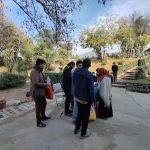 Zoology Department, Quaid-i-Azam University
Zoology Department, Quaid-i-Azam University
P4XP+7CV
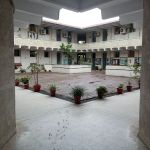 Faculty of Biological Sciences
Faculty of Biological Sciences
P4XP+664
 Department of Plant Sciences, QAU
Department of Plant Sciences, QAU
P4XP+46M
 Department of Anthropology
Department of Anthropology
Social Scienceu060c Block 2
 QAU boys hostel 3/4
QAU boys hostel 3/4
Quaid e Azam University Islamabad
 Quaid e Azam University Islamabad
Quaid e Azam University Islamabad
Quaid-e-Azam University
 Department of physics
Department of physics
P4XQ+365
 Department of Gender Studies
Department of Gender Studies
P4WP+HX6
 School of Sociology, Quaid-i-Azam University
School of Sociology, Quaid-i-Azam University
School of Sociology
 Pakistan Institute of Development Economics
Pakistan Institute of Development Economics
Quaid-i-Azam University Campus
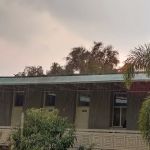 SPIR Chess Club
SPIR Chess Club
Quaid-e-Azam University Islamabad Bari Imam
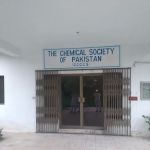 CCCC
CCCC
Department of Chemistry QAU
Dr. Rabab Zahra Laboratory, Department of Microbiology Reviews
More University
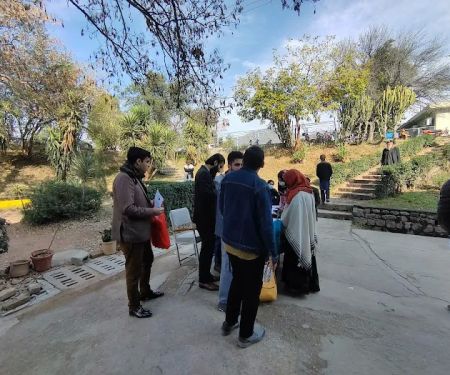 Zoology Department, Quaid-i-Azam University
4.0 (10 reviews)
Zoology Department, Quaid-i-Azam University
4.0 (10 reviews)
P4XP+7CV, University Rd, Islamabad, Pakistan
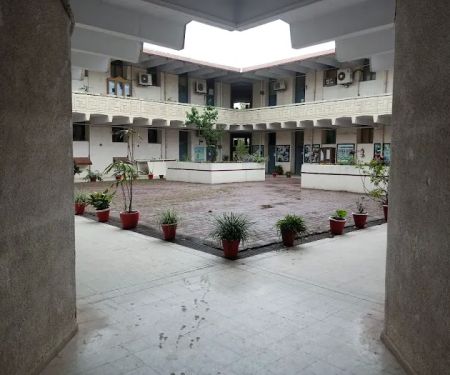 Faculty of Biological Sciences
4.0 (36 reviews)
Faculty of Biological Sciences
4.0 (36 reviews)
P4XP+664, Islamabad, Pakistan
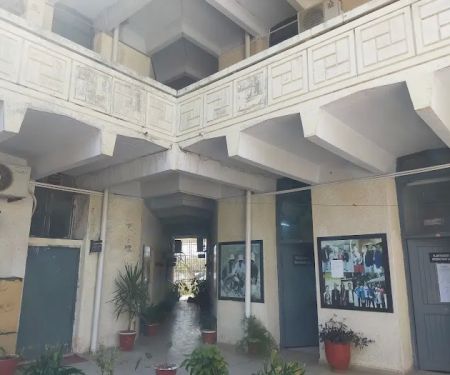 Department of Plant Sciences, QAU
5.0 (7 reviews)
Department of Plant Sciences, QAU
5.0 (7 reviews)
P4XP+46M, Islamabad, Pakistan
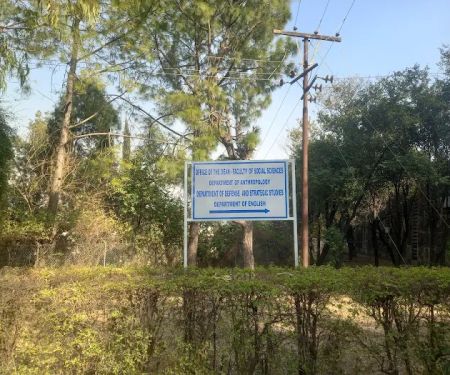 Department of Anthropology
5.0 (1 reviews)
Department of Anthropology
5.0 (1 reviews)
Social Scienceu060c Block 2, Unnamed Roadu060c u0627u0633u0644u0627u0645 u0622u0628u0627u062fu060c Pakistan
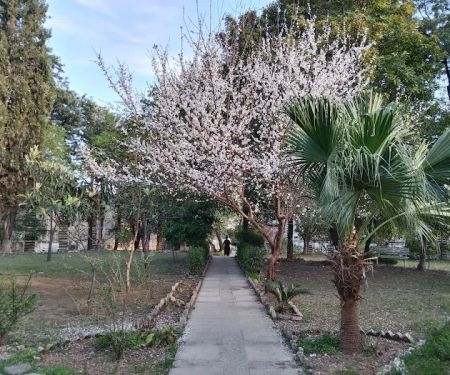 QAU boys hostel 3/4
4.0 (2 reviews)
QAU boys hostel 3/4
4.0 (2 reviews)
Quaid e Azam University Islamabad, 3 Hostel Rd, Islamabad, Pakistan
 Quaid e Azam University Islamabad
4.0 (3898 reviews)
Quaid e Azam University Islamabad
4.0 (3898 reviews)
Quaid-e-Azam University, Islamabad, 15320, Pakistan
 Department of physics
5.0 (1 reviews)
Department of physics
5.0 (1 reviews)
P4XQ+365, Quaid i Azam University, Islamabad, Pakistan
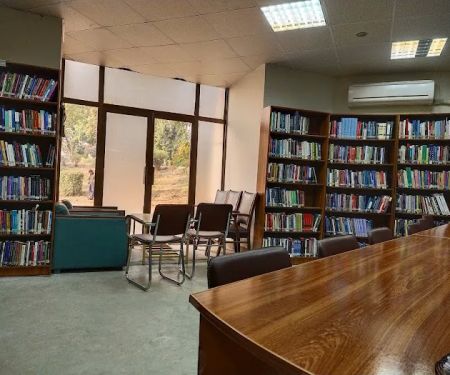 Department of Gender Studies
5.0 (1 reviews)
Department of Gender Studies
5.0 (1 reviews)
P4WP+HX6, Unnamed Road, Islamabad, Pakistan
 School of Sociology, Quaid-i-Azam University
4.0 (130 reviews)
School of Sociology, Quaid-i-Azam University
4.0 (130 reviews)
School of Sociology, Islamabad, Pakistan
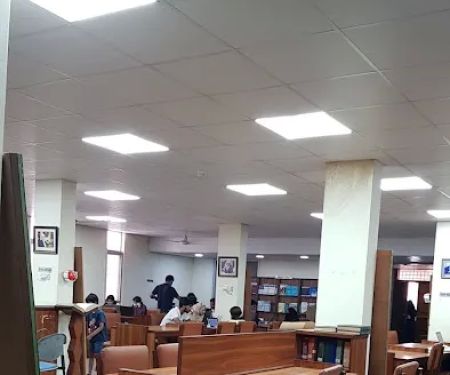 Pakistan Institute of Development Economics
4.0 (154 reviews)
Pakistan Institute of Development Economics
4.0 (154 reviews)
Quaid-i-Azam University Campus, Islamabad, 44000, Pakistan
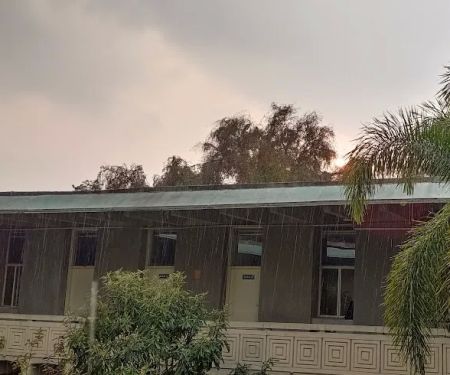 SPIR Chess Club
4.0 (15 reviews)
SPIR Chess Club
4.0 (15 reviews)
Quaid-e-Azam University Islamabad Bari Imam, Islamabad, 45320, Pakistan
 CCCC
5.0 (1 reviews)
CCCC
5.0 (1 reviews)
Department of Chemistry QAU, Islamabad, Pakistan
Categories
Popular
 GHS Malsa0.0 (0 reviews)
GHS Malsa0.0 (0 reviews) Governoment primary school (GPS Male)0.0 (0 reviews)
Governoment primary school (GPS Male)0.0 (0 reviews) St. Francis' High School0.0 (0 reviews)
St. Francis' High School0.0 (0 reviews) Govt Primary School Kochaki Kalli0.0 (0 reviews)
Govt Primary School Kochaki Kalli0.0 (0 reviews)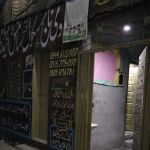 The knowledge school of science0.0 (0 reviews)
The knowledge school of science0.0 (0 reviews) Obaid Noor Institute of Medical Sciences Mianwali (Pvt) Ltd4.0 (22 reviews)
Obaid Noor Institute of Medical Sciences Mianwali (Pvt) Ltd4.0 (22 reviews)Trending Blog Posts
 Most In-Demand Degrees in Pakistan 2025 – Top Fields for the Future
Most In-Demand Degrees in Pakistan 2025 – Top Fields for the Future Most In-Demand Degrees in Pakistan – What to Study in 2025 for a Future-Proof Career
Most In-Demand Degrees in Pakistan – What to Study in 2025 for a Future-Proof Career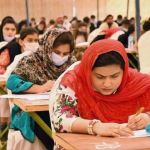 CSS 2025 Registration Deadline Announced by FPSC – Important Information for Aspirants
CSS 2025 Registration Deadline Announced by FPSC – Important Information for Aspirants Pakistan Education Census 2025 to Be Conducted in August: What to Expect
Pakistan Education Census 2025 to Be Conducted in August: What to Expect KP Inter Board Results to Be Announced District-Wise: What Students Need to Know
KP Inter Board Results to Be Announced District-Wise: What Students Need to Know CSS 2025 Registration Deadline Announced by FPSC: Key Details and Preparation Tips
CSS 2025 Registration Deadline Announced by FPSC: Key Details and Preparation Tips 